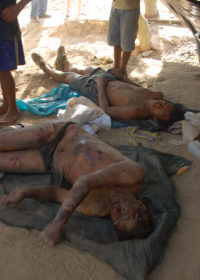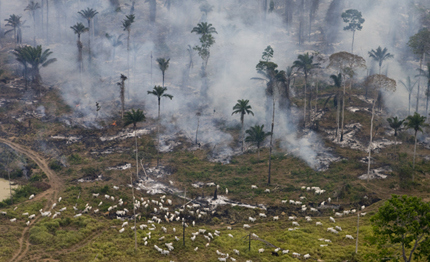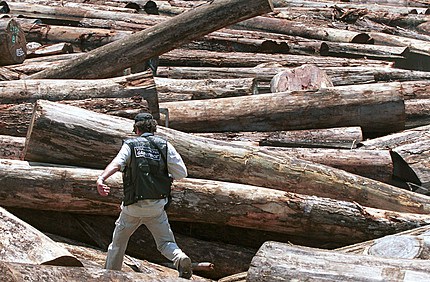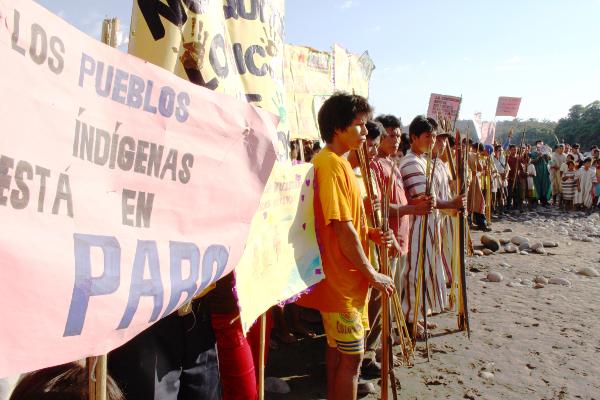Amazonia
Frequently Asked Questions Concerning the Philosophy, Politics and Historical Problems of Volunteering
This is a general and quick post in response to Frequently Asked Questions about the problems of choosing where to invest one’s time and labour when volunteering in foreign places with good intent. It started as a reply to a comment – part of a long thread about a conservation project in the Amazon – then expanded slightly to become this first draft of a short reply to questions concerning volunteering.
Where and what is good agency put into which structures? It is an endless journey through the soul and the corridors of political thinking, philosophical reflection, historical recognition and ethical considerations – and it is also that first single step of your journey. It begins in the mind, unfolds in the imagination and will have a material impact on the place you go to.
Over the years we have spend a lot of time and energy helping people finding their ways in Ecuador and Peru, we have spend a lot of time suggesting projects, providing contacts and so on. However, in the end, people mostly go and do their own thing anyway. However, if you have only 4-6 months time and want to connect sooner, and should you really want to do something in or around Tena, Napo, in the Ecuadorian Amazon, or in San Francisco in Peru, and if working on a small scale and community level with people outside of NGO structures, doing down-to-the-ground, bottom-up work, with lovely families, if that is your thing, then do get in touch.
Carbon Trading is Making a Killing and Destroying the Environment
Press Release: Carbon Markets Violate Indigenous Peoples’ Rights and Threaten Cultural Survival
“Indigenous Peoples are being forced to sign over their territories for REDD to the Gangsters of the Century, carbon traders, who are invading the world’s remaining forests that exist thanks to the knowledge of Indigenous Peoples,” denounced Marlon Santi, President of the CONAIE, the Confederation of Indigenous Nationalities of Ecuador, one of the most powerful native organizations in the world. “Our forests are spaces for life not carbon markets.”
Indigenous leader kidnapped and forced at gunpoint to surrender carbon rights for REDD in Papua New Guinea
New York, USA — As carbon traders hawk permits to pollute at the Second Annual Carbon Trading Summit, Indigenous Peoples denounced that selling the sky not only corrupts the sacred but also destroys the climate, violates human rights and threatens cultural survival.
“Carbon trading and carbon offsets are a crime against humanity and Creation,” said Tom Goldtooth, Executive Director of Indigenous Environmental Network. “The sky is sacred. This carbon market insanity privatizes the air and sells it to climate criminals like Shell so they can continue to pollute and destroy the climate and our future, rather than reducing their emissions at source.”
Two killed during protests against water laws in Ecuador.
Ecuador is currently seeing another indigenous uprising in response to the proposed Law of Water (amongst others). Yesterday, a group indigenous protesters (mainly from the Shuar nation) in the Amazon were shot at from a helicopter, leaving two dead and nine other wounded.
colonos is replicating here briefly a statement of the Confederation of Indigenous Nationalities of the Ecuadorian Amazon, and providing some links to further sources.
The proposed Law of Water is said to be in violation of the Ecuadorian Constitution, which prohibits all forms of privatisation of water. The law would allow for privatisation of water through the back door and prioritise needs of big developments (hydropower and mining) over those of the people. Moreover, in its article 43 it allows for the use of the Armed Forces in situations of protest and conflict around water use (such as when people would protest the diversion of community water for use in mining).
Read the rest of this entry »
Call for napalm bombing of ‘savages’ wins Survival racism award
A press release by Survival International:
“An article implying Peruvian Indians should be bombed with napalm has been named by human rights organisation Survival International as the ‘most racist article’ published in the last year by the mainstream media.
The article was published in the Peruvian national newspaper Correo. It calls indigenous people ‘savages’, ‘Palaeolithic’ and ‘primitive’; says that their languages have no more than eighty words; and declares that, in the protests that have recently engulfed much of Peru’s Amazon, they were manipulated by ‘communist excrement’.
‘For those of you who still think of these ‘ethnic groups’ as ‘good’, ‘naïve’ and ‘pure’, I will remind you that it was these same people who perfected the art of shrinking the heads of their enemies and wearing them on the belts holding up their loincloths. If the ‘natives’ didn’t shrink the heads of the policemen they killed (in the recent protests) and eat their remains, it was only because there wasn’t time.’
The article also attacks three indigenous congresswomen, ridiculing their names and referring to them as the ‘three starlets in the parliamentary sewers’. Its response to the indigenous protests against the exploitation of natural resources on their land is: ‘Get f****d, loincloths and all’. The penultimate sentence is: ‘I don’t know what keeps the president from providing the air force with all the napalm necessary.’
The ‘most racist article of the year’ award is part of Survival’s ‘Stamp it Out’ campaign which aims to challenge racist descriptions of indigenous peoples in the world’s media. The winner receives a certificate inscribed with a quotation from Lakota Sioux author Luther Standing Bear: ‘All the years of calling the Indian a savage has never made him one.’
Stamp it Out is supported by eminent journalists such as the BBC’s World Affairs correspondent John Simpson, George Monbiot, John Vidal, and best-selling authors Tim Butcher and Simon Garfield.
Survival’s director, Stephen Corry, said today, ‘This article makes depressing reading for anyone who thinks newspapers should educate and inform their readers. We hope the publicity this award receives will make the paper think twice before printing such offensive rubbish again.’
Read an English translation of the article
For more information and images please contact Miriam Ross:
(+44) (0)20 7687 8734 or (+44) (0)7504543367
mr@survival-international.org
CONFENIAE on REDD: Ecuadorian Indigenous Peoples’ Statement
This is an unofficial translation of a Ecuadorian indigenous peoples’ statement on REDD:
CONFEDERATION OF INDIGENOUS NATIONALITIES OF THE ECUADORIAN AMAZON (CONFENIAE)
(Logo and letterhead, list of members including organizations of the Shuar, Kichwa, Achuar, Waorani, Siona, Secoya, Cofan, Zapara, Shiwiar and Andoa Peoples)
STATEMENT
Unión Base, Puyo August 3rd, 2009
CONFENIAE REJECTS ALL KINDS OF ENVIRONMENTAL NEGOCIATIONS ON FORESTS AND EXTRACTIVE POLICIES THAT DAMAGE THE TERRITORIES OF THE AMAZONIAN INDIGENOUS NATIONALITIES AND PEOPLES OF ECUADOR.
Peru’s Congress Suspends Destructive Decrees: Not a victory, just one less defeat!
Today the world’s media carry the story of the Peruvian Congress having suspended the destructive decrees that caused a non-violent, yet forceful uprising by indigenous peoples organising to defend the Amazon from the oil and gas industry. It is not a victory – merely one less defeat! The forest continues to be destroyed. Drilling, pumping, spilling roads building and Christian conquest of hearts, souls and minds through concerted violence, repression, manipulation, false promises (“Jesus will buy you a fridge and a car”) and disrespect for the inhabitants of what was once the world’s largest (rain) forest, but which is now better described as a region threatened by destruction, deforestation, desertification, in brief, death. However, at least, for now the attempt to accelerate further the destruction has been pushed back, but not stopped. The struggle continues…..
June 11, 2009
World Briefing | The Americas
Peru: Decrees to Open Jungle Area to Investment Are Suspended
By SIMON ROMERO
Congress temporarily suspended two decrees issued by President Alan García that had helped set off recent protests by indigenous groups fearful of large oil and logging investments in the Peruvian Amazon. The decrees would open vast jungle areas to investment and allow companies to bypass indigenous communities to get permits for projects. The protests resulted in repression by security forces and apparent reprisals by Indians last week that left dozens dead.
See also: Top name brands implicated in Amazon destruction, New Greenpeace report shows how the cattle industry in Brazil is feeding demand for raw resources and “Slaughtering the Amazon”
Killings in the Amazon: Peruvian protests even more violently repressed
colonos is reproducing here a text by Ben Powless on rabble.ca, including the “INTERNATIONAL DENUCIATION of President Alan García Pérez of Peru and his admistration” by the COORDINATING BODY OF ANDEAN INDIGENOUS ORGANZIACIONES – CAOI.
We have received various notices from people in the Amazon reporting about 10 – 40 indigenous protesters having been shot dead.

Here goes:
50 days of protest and one massacre in the Peruvian Amazon
I’m writing this right now from Peru after having taken part in a 5 day Indigenous Peoples Summit held in Puno, Peru in the high Andes. Read the rest of this entry »
Peru Sends in Army to Suppress Peaceful Indigenous Protests
colonos is reproducing here an Amazon Watch news release. Our comment: no news there.
Date: May 19, 2009
Source: Amazon Watch
FOR IMMEDIATE RELEASE: May 19, 2009
Media Contacts:
USA – Gregor MacLennan (415) 395-6734 gregor AT amazonwatch.org
PERU – Edson Rosales +511 99-787-6616, +511 265-5011 comunicaciones AT aidesep.org.pe
Oil Production Interrupted as Peru Sends in Army to Suppress Peaceful Indigenous Protests
Dozens Injured in Government Attacks on Protesters
Video footage, photos, interviews available upon request
LIMA, Peru, May 19, 2009— Yesterday, on the 40th day of sustained protests by Peru’s indigenous peoples, the state oil company Petroperu, announced it had shut down the country’s main oil pipeline. On Saturday, the Garcia Government authorized the intervention of the armed forces to crack down on peaceful protests that have swept the Amazon region.
IIRSA: A Project of Destruction
The colonos blog has been following the plans and projects for commodity corridors – corredores – in South America unfolding under the IIRSA banner for several years now. IIRSA is a central element in the collaboration between Rafael Correa (Ecuador), Lula (Brasil), Chavez (Venezuela) and Evo Morales (Bolivia) and the rest of South American in the Great Plan to turn the entire continent into an industrial production site. Soon, as sad as it is, one of the key nodes in this network of destruction will be completed: the Interoceanic Highway, connecting the coast of Peru and the coast of Brasil:
Peru: Destructive Amazonian highway near completion
David T. Rowlands
2 May 2009
The nightmarish prospect of a scarred Amazonian jungle reeking of diesel fumes from end to end, as heavy-laden trucks thunder by in round-the-clock convoys, is fast becoming a reality.
Since 2000, teams of road builders have been cutting a vicious swathe of destruction through vast stretches of rainforest in the Peruvian province of Madre de Dios. This is done in the name of “free trade” and neoliberal “development”.
Scheduled for completion in 2010, the Interoceanic Highway will link up with Brazil’s existing Amazonian road network. This will create a coast-to-coast trucking route for Brazilian-based agribusiness exporting soy and other primary products to China via Peru’s Pacific ports.
Ecosystems Services and IIRSA: Roads and Price Tags all over the Amazon
The WWF – the ones with the Panda logo – have published a report on the details about “saving” the Amazon rain forest by putting a price tag on every thing, – sorry, assets is probably a better term-, that the rain forest possesses.
The report – Pita Verweij, Marieke Schouten, Pieter van Beukering, Jorge Triana, Kim van der Leeuw and Sebastiaan Hess. Keeping the Amazon forests standing: a matter of values, WWF-Netherlands 2009 – is presented here by Mongobay.
This bizarre fashion of price tagging everything starts with the realisation that the market mechanisms have failed the environment, which is a pretty good observation, but then proceeds to suggest that the very same paradigm of thinking – the economistic, capitalistic reductionist line of thinking – should simply also be applied to “the environment”, since it provides humans with valuable “ecosystems services“. If it is not tagged with a price, why care for it?
While this whole business, as it were, sounds rather disturbing (Can two wrongs make a right? Can a problem be solved from within the paradigm it was created? Einstein famously answered the latter question, of course), the report has some very good bits – it is a very comprehensive report that deserves wider attention, but the price tagging horror really does not appeal very much – at all – to colonos or any of the people we have worked with in the forest. Essentially, it sounds like a lose-lose scenario: either lose the forest or sell it to the highest bidder? And bidding is low these days of financial collapse, so one could hardly imagine worse timing for the publication of this report.
Interestingly, it has a pretty good section on IIRSA, which has been covered again and again here, but the section does not include reference to the Manta-Manaus/Manaos corridor. This goes to show just how big the “biggest infrastructure project in history” is: an otherwise detailed and comprehensive report does not need to list the Manta-Manaus corridor in order to show just how much of a horror show that IIRSA is threatening to be:
Another hard-luck story: Climate Change, the Amazon and the Arctic
In yesterday’s Guardian there is yet “another hard-luck story that you’re gonna hear”:
“Chris Jones, who led the research, told the conference: “A temperature rise of anything over 1C commits you to some future loss of Amazon forest. Even the commonly quoted 2C target already commits us to 20-40% loss. On any kind of pragmatic timescale, I think we should see loss of the Amazon forest as irreversible.” Peter Cox, professor of climate system dynamics at the University of Exeter, said the effects would be felt around the world. “Ecologically it would be a catastrophe and it would be taking a huge chance with our own climate. The tropics are drivers of the world’s weather systems and killing the Amazon is likely to change them forever. We don’t know exactly what would happen but we could expect more extreme weather.”
Massive Amazon loss would also amplify global warming “significantly” he said. “Destroying the Amazon would also turn what is a significant carbon sink into a significant source.””
Just a few days ago new results came out about the loss of arctic ice showing once again that predictions are continuously shown to be way too conservative – positive feedback loops are upon us:
“Amazon dieback is one of the key positive feedbacks brought about by global warming. These are typically runaway processes in which global temperature rises lead to further releases of CO², which in turn brings about more global warming. In the Amazon this happens on a more localised scale but the result, increased forest death, also releases carbon into the atmosphere.
Experts predict that higher worldwide temperatures will reduce rainfall in the Amazon region, which will cause widespread local drought. With less water and tree growth, “homegrown” rainfall produced by the forest will reduce as well, as it depends on water passed into the atmosphere above the forests by the trees. The cycle continues, with even less rain causing more drought, and so on.
With no water, the root systems collapse and the trees fall over. The parched forest becomes tinderbox dry and more susceptible to fire, which can spread to destroy the still-healthy patches of forest.
Other positive feedback effects expected by scientists, are releases of carbon stored in frozen arctic ecosystems and an increase in the sun’s energy absorbed by the planet as ice melts.”
As already mentioned above, new results from the ice front have arrived and the predictions for an ice free Arctic summer is not far in the future:
“The year “2013 is starting to look as though it is a lot more reasonable as a prediction. But each year we’ve been wrong — each year we’re finding that it’s a little bit faster than expected,” he told Reuters.
The Arctic is warming at twice the rate of the rest of the world and the sea ice cover shrank to a record low in 2007 before growing slightly in 2008.
In 2004 a major international panel forecast the cover could vanish by 2100. Last December, some experts said the summer ice could go in the next 10 or 20 years.
If the ice cover disappears, it could have major consequences. Shipping companies are already musing about short cuts through the Arctic, which also contains enormous reserves of oil and natural gas.”
It’s not looking good.
Oil spill in the Ecuadorian Amazon
It’s a disaster.
colonos is here reproducing an article from the Ecuadorian national daily El Comercio (in Spanish).
The extent of the spill is yet to be determined, but basically it occurred due to a rupture of the 305km long pipeline running from the Amazon to the coast. On Tuesday, the pipeline broke in the cantón El Chaco in the rainforest at the foothills of the Andes where it runs 20m under the ground. The river Santa Rosa turned black. The pipeline carried 130,000 barrels of crude at the moment of rupture. The company reports that the oil exports are guaranteed until the end of the month. Clean up, according to the company, might last over a year. But how clean is clean?
Fecha: Miércoles 25 de Febrero de 2009
Fuente: El Comercio
La rotura de una de las sueldas de la tubería del Oleoducto de Crudos
Pesados (OCP) ocasionó un derrame de petróleo de proporciones en el
cantón El Chaco.
A las 10:30, María Macas se sorprendió al ver que el río Santa Rosa era
una gran mancha negra que corría lentamente. Uno de sus mayores temores se hizo realidad ayer: hubo un derrame de petróleo que cubrió el cauce del río, las piedras y la maleza de las orillas.
Read the rest of this entry »



